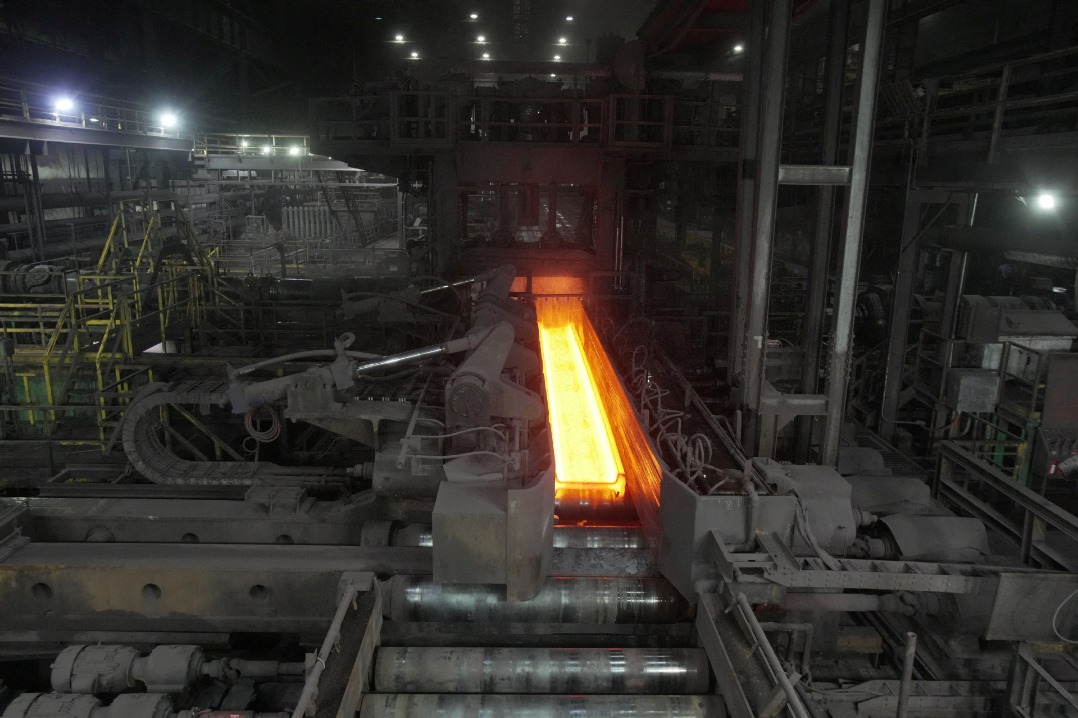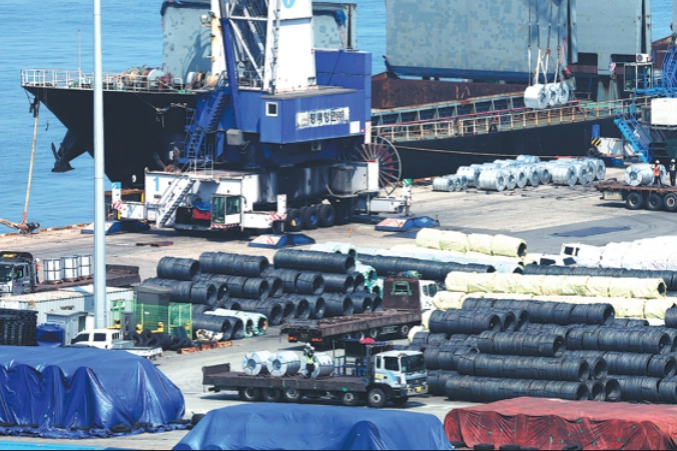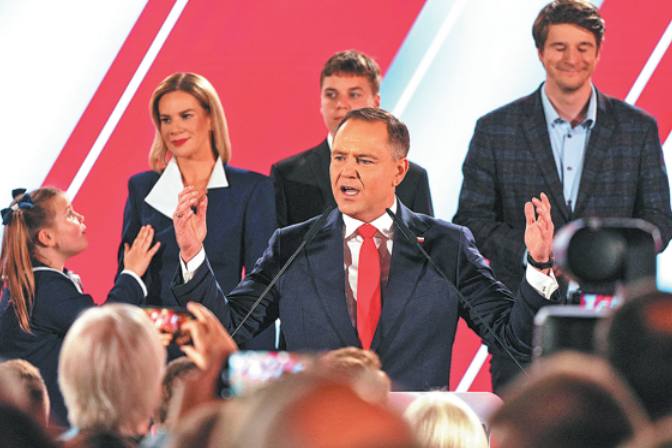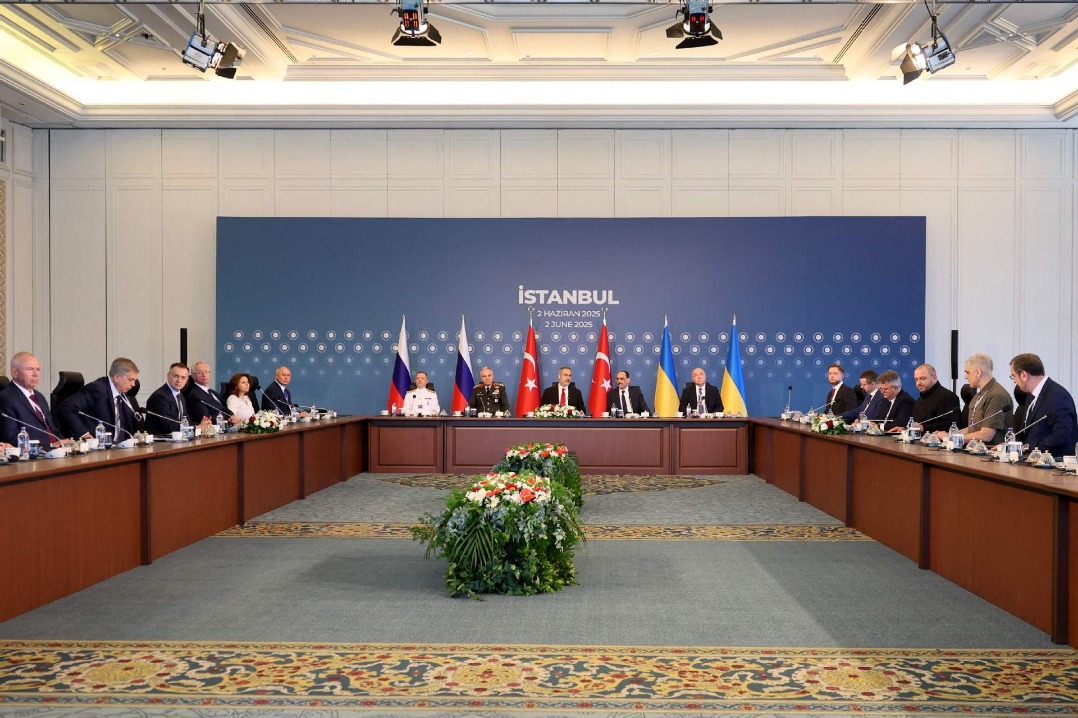Hike in metal tariffs fuels concern in Asia
Washington's plan to double taxes on steel, aluminum unsustainable: Experts

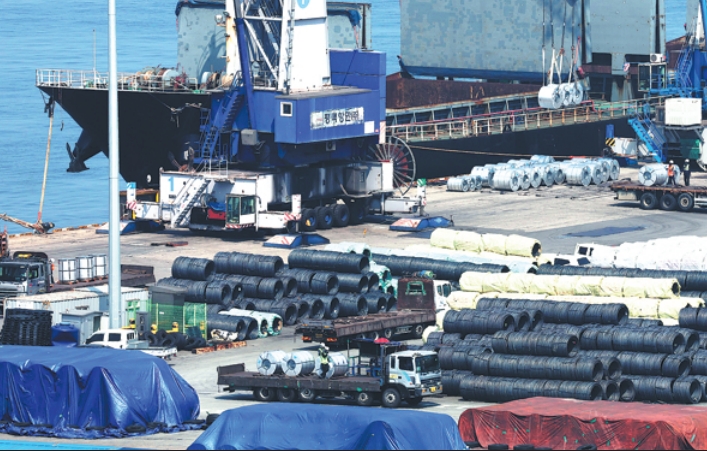
Key US trading partners in Asia are concerned over Washington's hike in steel and aluminum tariffs to 50 percent, while engaging in discussions with local industry bodies and companies on ways to deal with the situation.
Experts said the United States will not be able to sustain the huge tariffs as the levies will put a huge burden on US industries that rely on imports of the two key manufacturing inputs.
South Korea's Ministry of Trade, Industry and Energy held on Monday an emergency meeting with local steel companies to discuss the impact of the new levies and future measures to minimize the impact.
Industry representatives asked the government to promptly share information about the tariffs and negotiate with the US, according to a news release issued by the ministry.
The meeting came after US President Donald Trump announced on Friday that he plans to double the tariffs on steel and aluminum imports to 50 percent from Wednesday, which he said will help secure the US domestic industry. The current 25 percent has been imposed since March 12.
The US imported 28.86 million metric tons of steel in 2024, representing 23 percent of all finished steel in the country, according to data from the American Iron and Steel Institute.
South Korea was the fourth largest steel exporter to the US in 2024, after Canada, Brazil and Mexico, followed by Vietnam and Japan.
Shin Se-don, professor emeritus of economics at Sookmyung Women's University in Seoul, said the 50 percent tariffs will not last long because it will become a heavy burden for US manufacturers.
The US government may be using tariffs to get more negotiating power against major exporting countries, he said.
The 50 percent tariffs "cannot be maintained", Shin told China Daily. "This is not for the exporters, but for the sake of the United States because… they have to face a higher price and it is not going to be sustainable."
Though the domestic political situation has limited the South Korean government's response to US tariffs, Shin said there has been a trend among South Korean companies in recent years to lower their steel exports, so the industry is prepared to some extent.
"Even if 50 percent is significant, I think the overall impact on South Korea's macroeconomic performance will not be that significant," Shin said.
Japan, the world's second-largest steel exporter, said it will monitor closely the details of the US tariff measures, Jiji Press reported.
'Extremely regrettable'
At a news conference on Monday, Yoshimasa Hayashi, Japan's chief cabinet secretary, said the series of additional tariff measures taken by the US government are "extremely regrettable" and that Tokyo will strongly urge a review.
Japan's chief tariff negotiator Ryosei Akazawa, the minister in charge of economic revitalization who just returned from the US on Sunday, is expected to visit Washington this week again for the fifth round of negotiations.
The Global Trade Research Initiative, a New Delhi-based think tank, said India will face a direct impact from the tariffs, especially in terms of affecting the competitiveness and profitability of Indian manufacturers and exporters in the US market.
Karori Singh, former director and an emeritus fellow at the South Asia Study Centre at the University of Rajasthan in India, said, "Manufacturers and entrepreneurs in India are apprehensive of Trump's moves."
Trade and investment are mutually beneficial economic and commercial activities, but the US policies are "mutually harming", said Singh.
Stock markets in Asia slipped on Monday amid investors' concerns over escalating trade tensions.
In South Korea, steelmaker POSCO Holdings saw its shares sink 2.4 percent, while Hyundai Steel fell 2.66 percent, Yonhap News Agency noted.
Vietnamese steelmakers Hoa Sen Group and Nam Kim Steel tumbled 2.8 percent and 3.4 percent, respectively, according to Reuters.
Japan's benchmark Nikkei 225 ended down 1.3 percent and the Topix index dropped 0.87 percent.
Xu Weiwei in Hong Kong contributed to this story.
Contact the writers at kelly@chinadailyapac.com.
















